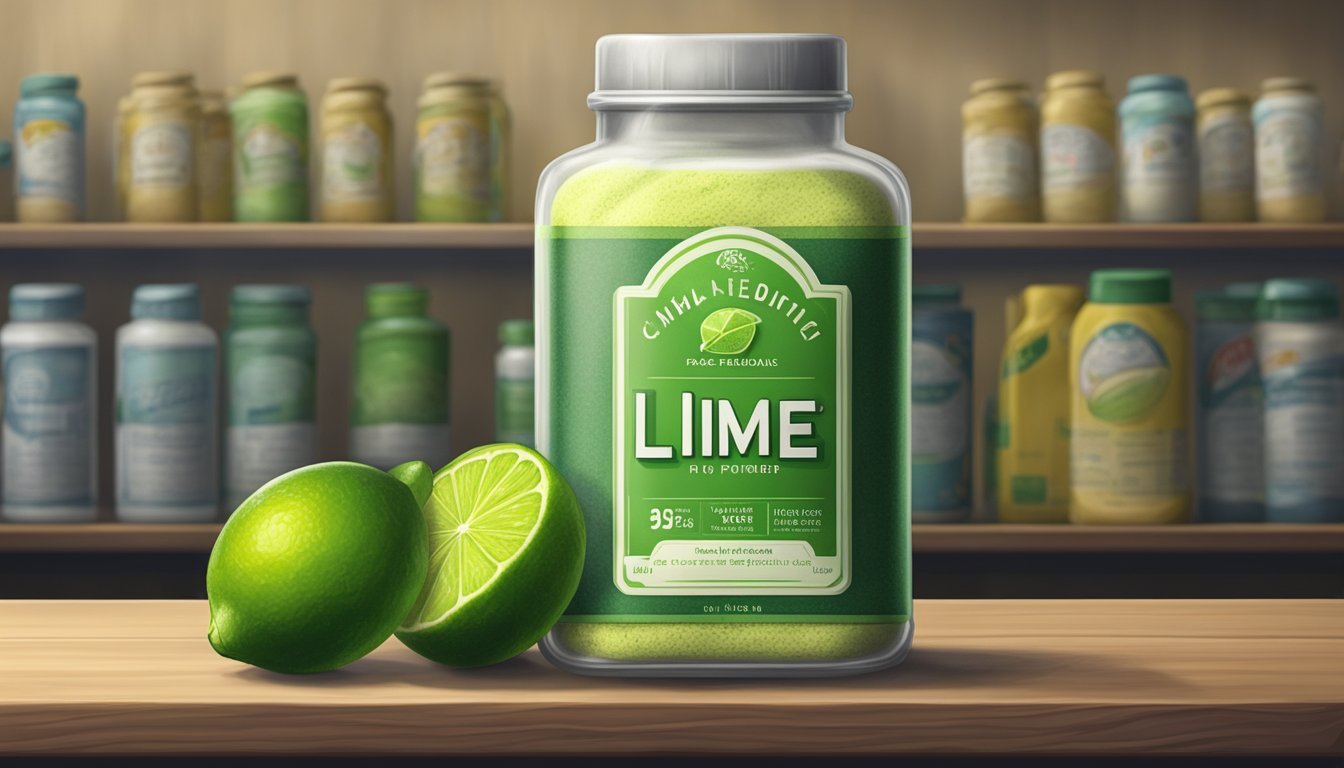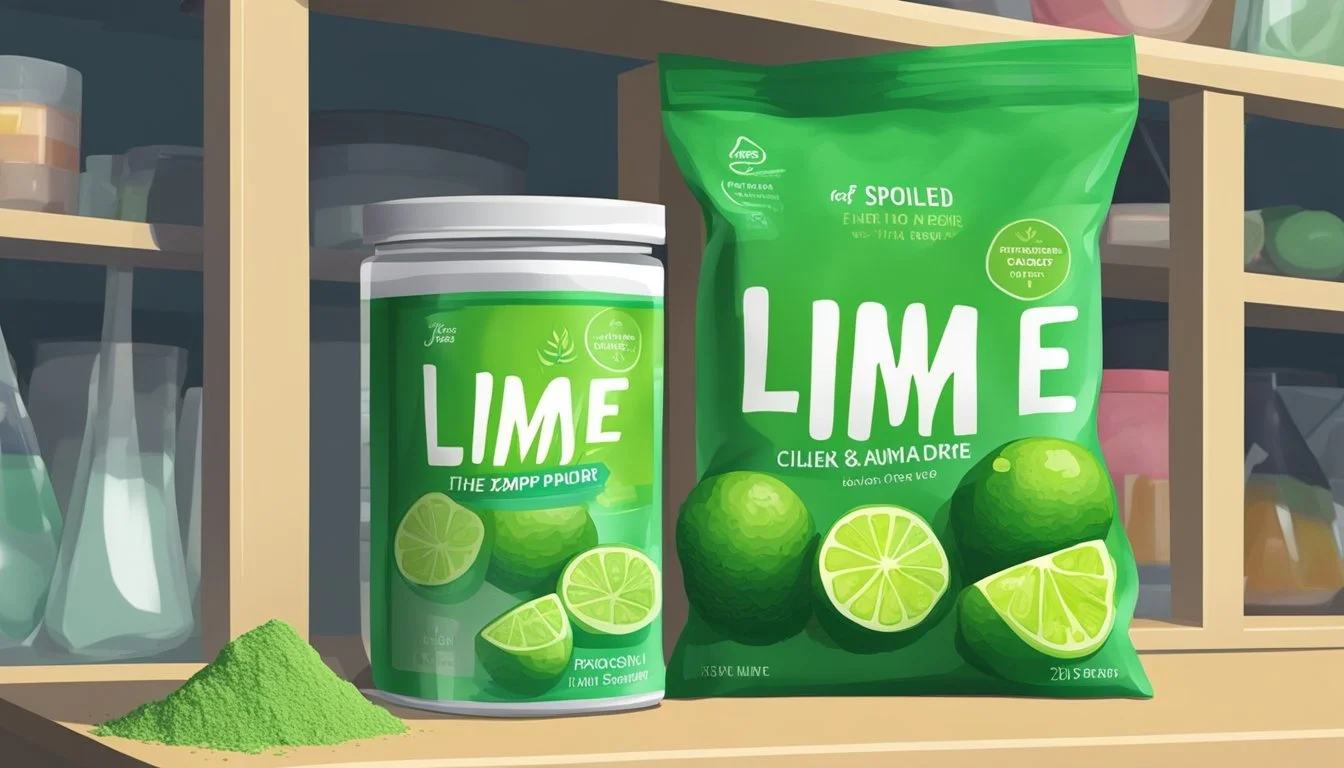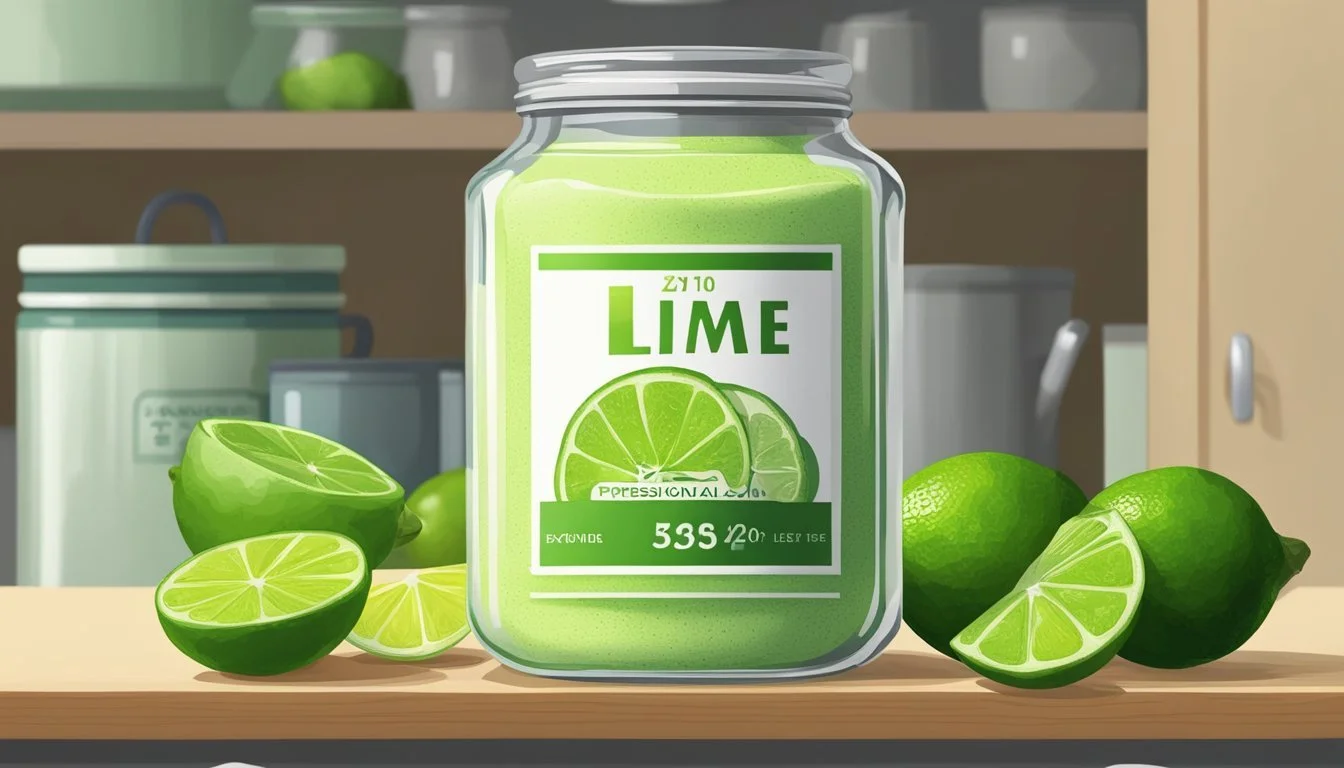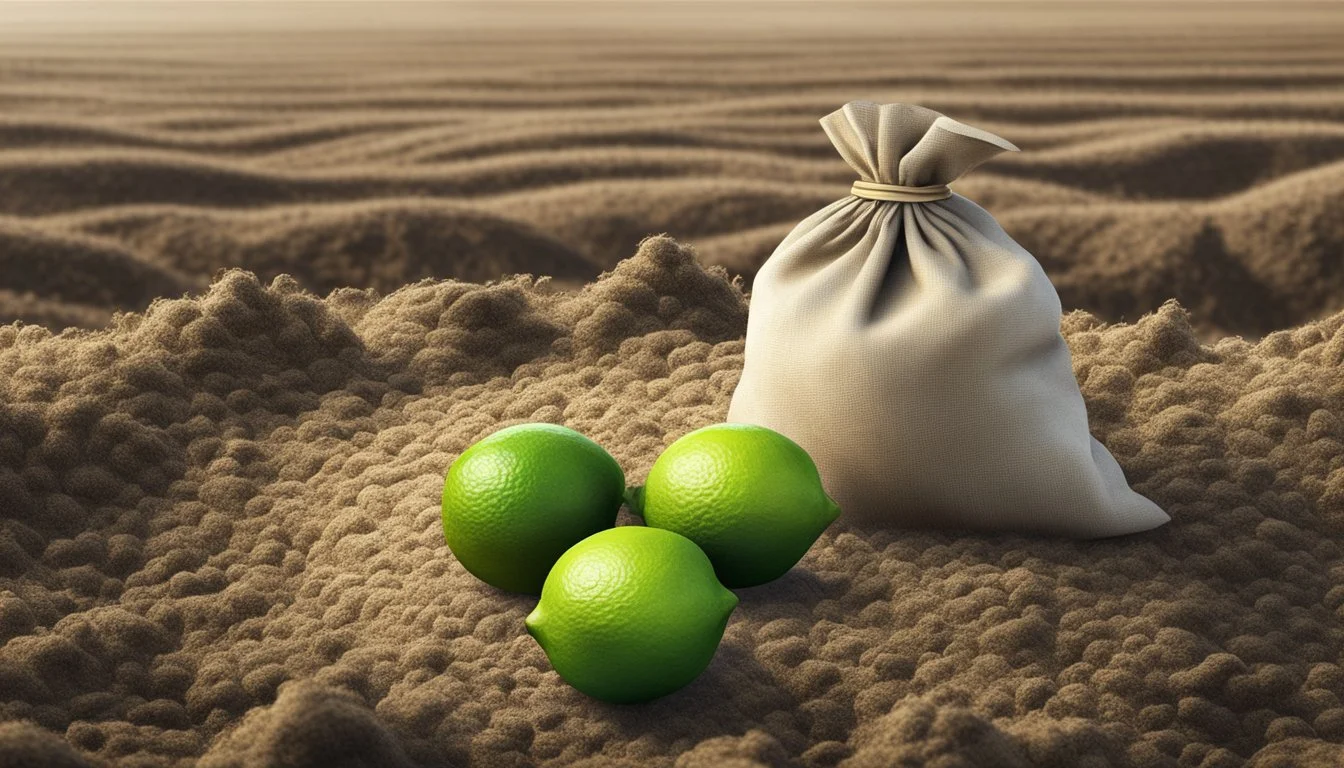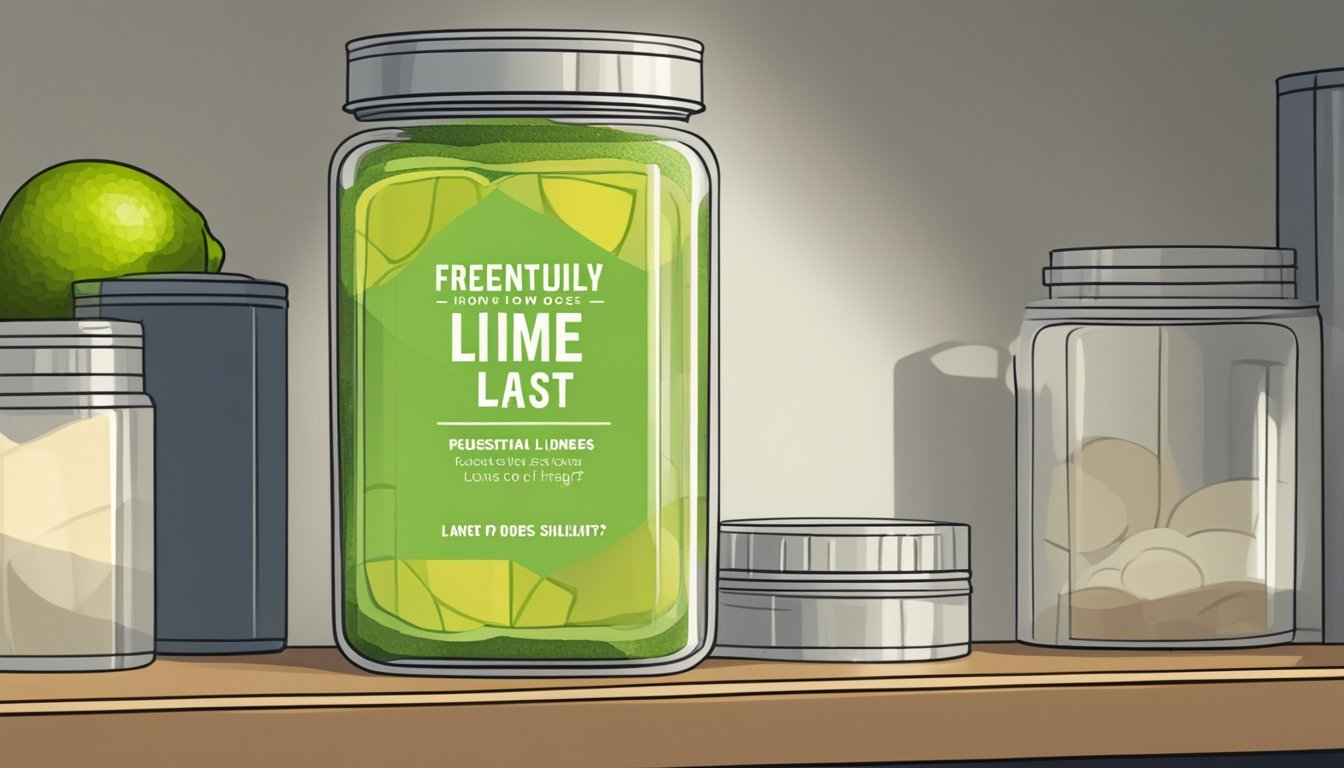How Long Does Lime Powder Last?
Shelf Life and Storage Tips
Lime powder, also known as ground limestone or calcium carbonate, is a commonly used amendment that serves to correct soil acidity and provide essential nutrients for plant growth. The longevity of lime powder when applied to soil is influenced by various factors, but generally, it is not a short-lived remedy. Once introduced to the soil, lime powder begins a gradual process of chemical reactions that can continue to alter the soil's pH level for several months or even years, depending on soil conditions and the initial acidity levels.
Optimal storage conditions are critical for maintaining the effectiveness of lime powder. The substance should be kept dry and protected from moisture, as exposure to water can start the chemical reaction that neutralizes soil acidity, effectively reducing the product's potency before it is applied to the soil. When stored properly, lime powder can remain stable and effective for a lengthy period, ensuring its availability for use when the appropriate soil treatment time arrives.
The rate at which lime reacts with the soil and changes the pH level is also a key consideration. Soil composition, moisture content, and lime particle size all play pivotal roles in the rate of reaction. Finer particles tend to react more quickly than coarser ones, promoting faster adjustments to soil pH. However, even with finer particles, this process is not instantaneous, and measurable changes in soil chemistry may take several weeks—or in some cases, even months—to fully manifest.
Chemical Composition
The composition of lime powder is critical for understanding its longevity and effectiveness in various applications. It chiefly consists of calcium carbonate and may include magnesium, which affects its durability and reactivity.
Calcium Carbonate and Magnesium
Calcium carbonate is the primary ingredient in lime powder, often derived from natural sources such as limestone. Its chemical formula is CaCO₃. Lime may also contain magnesium if it is sourced from dolomitic limestone, which is indicated by a chemical analysis revealing more than 5% magnesium content. Magnesium contributes to the liming material's effectiveness and can influence soil treatment outcomes.
Alkaline Substance Properties
Lime powder is an alkaline substance. Its alkalinity is expressed through its pH level, which is above 7.0, making it capable of neutralizing soil acidity. The active component, calcium hydroxide (Ca(OH)₂), derived when calcium oxide (quicklime) is mixed with water, imparts these alkaline properties. The pH level of lime powder directly correlates with its capacity to correct soil pH and, thus, plays a pivotal role in its longevity and effectiveness as a soil amendment.
Expected Shelf Life of Lime Powder
This section will explore the key variables that influence lime powder's durability, providing an estimated timeframe for its optimal usage.
Factors Affecting Shelf Life
Temperature: Lime powder's longevity is greatly impacted by the storage temperature. Cooler environments (ideally below room temperature) tend to extend its shelf life.
Moisture: A critical adversary of lime powder is moisture. It must be kept in a dry place to prevent clumping and degradation.
Airflow: Proper ventilation assists in warding off moisture accumulation, but lime powder containers should be tightly sealed to restrict airflow that can lead to oxidization.
Average Duration
Lime powder, when stored correctly, maintains its efficacy for a period that typically ranges from:
Unopened: 18 months to 2 years
Opened: Up to 6 months when stored in airtight containers
These durations can vary based on brand and the specifics of storage conditions, but they reflect a general guideline for maintenance of quality. Use within these timeframes ensures maximum effectiveness of the lime powder for its intended purposes.
Storage Solutions
Proper storage extends the shelf life of lime powder. By mitigating factors that accelerate degradation, one ensures the retention of flavor and effectiveness.
Airtight Containers
The use of airtight containers is crucial for preserving the potency of lime powder. These containers prevent the intrusion of moisture and other contaminants that can lead to clumping or spoilage. The best options include:
Glass jars with rubber gasket seals
Hard plastic containers with lock lids
Metal tins with snug-fitting lids
It is imperative that the user ensures the container is thoroughly dry before adding the lime powder to prevent clumping.
Humidity and Light Management
Managing humidity and light exposure is essential for the stability of lime powder. One should store lime powder in a cool, dry place away from direct sunlight which can degrade its quality. Key points include:
Avoid storage in areas prone to dampness, such as under the sink or near a dishwasher.
Cabinets or pantries that do not receive direct sunlight are ideal.
Silica gel packets can be added to the storage container to absorb excess moisture.
By applying these storage tips, the longevity and effectiveness of lime powder are considerably improved.
Identifying Spoilage
When it comes to lime powder, understanding the signs of spoilage is critical to ensure food safety. The shelf life can be extensive, but certain indicators can signal when it's time to discard the product.
Indicators of Spoilage
Spoilage in lime powder is often detectable through a variety of senses. Users should be aware of:
Visual Changes: Lime powder should maintain a uniform color. Signs of discoloration could indicate the presence of mold or bacteria growth.
Odor Changes: A sour smell or any off-putting aroma is a clear indication that the lime powder may have spoiled. Fresh lime powder should have a citrus scent.
Preventing Mold and Bacteria Growth
To prevent mold and bacteria from spoiling lime powder:
Storage: Keep the powder in a sealed container, in a cool, dry place.
Moisture Control: Moisture initiates bacterial growth. Ensuring the lime powder remains dry is critical.
Hygiene: Use clean utensils when handling the powder to avoid cross-contamination.
Optimal Usage Conditions
For effective application, understanding the role of climate and soil conditions is critical in determining how long lime powder, primarily composed of calcium carbonate, remains effective as a soil amendment.
Climate Considerations
In regions with heavy rainfall, lime powder's effectiveness may diminish more quickly as rain can lead to leaching of lime from the soil, reducing its longevity. Therefore, the frequency of lime powder application might increase in such climates to maintain desired soil pH levels.
Soil Condition Applications
When applying lime powder to soil, it is used as a fertilizer to correct soil pH levels, typically when soil is too acidic. However, for lime powder to work effectively, it needs time to react with the soil. As calcium carbonate, the primary component of lime powder, gradually neutralizes soil acidity, proper application ensures a steady improvement in soil pH over time.
Culinary Applications
Lime powder serves as a versatile ingredient in the kitchen, enhancing the flavor and texture of various dishes. It also plays a role in food preservation and maintaining freshness.
Enhancing Flavor and Texture
Lime powder is known for its ability to amplify the taste profile of foods. In baked goods, it can add a distinct citrus zest without the additional moisture that lime juice would contribute. By integrating lime powder into the recipe, chefs can achieve a concentrated lime flavor that persists even after exposure to high temperatures during baking.
Culinary uses include:
Marinades: Infuses proteins with a tangy flavor.
Dressings: Offers a punch of citrus in vinaigrettes.
Seasoning blends: Complements spices for enhanced taste complexity.
In terms of texture, lime powder can interact with other components in a dish, particularly proteins. It can tenderize meats, altering their texture for a more palatable experience.
Preservation and Freshness
Lime powder exhibits properties beneficial for food preservation. Its high acidity level makes it a natural preservative by inhibiting the growth of certain bacteria. This prolongs the freshness of food products and can be an integral part of the preservation process.
Ways lime powder contributes to preservation:
As an additive in canned goods to prevent spoilage.
In the curing mixtures for preserving meats.
Sprinkled on fruits to extend freshness and prevent browning.
In addition, the zesty flavor of lime powder can rejuvenate the taste of dishes, often compensating for the loss of freshness that comes with storage. Its use in juice blends can provide a stable citrus note that remains consistent over time.
Agricultural Uses
Lime powder, frequently referred to as agricultural lime, or 'aglime,' is primarily used in farming to regulate the pH level of soil. This manipulation of soil acidity is critical for enhancing crop yield and maintaining healthy lawns and grasslands.
Adjusting Soil Acidity
In agricultural settings, aglime is applied to soil to reduce acidity, which is indicated by a pH level below 7.0. Soils can become acidic from factors like rainfall, the use of certain fertilizers, and natural organic matter decomposition. When the soil pH is adjusted towards neutral, which is a pH of 7.0, nutrient availability to plants typically increases, supporting better growth.
Ideal pH range: Agricultural experts often aim to maintain soil pH in the range of 6.0 to 7.0 for optimal plant growth.
Application frequency: It is imperative for farmers to regularly test soil pH and reapply lime as needed, as the length of time that lime lasts in the soil can vary widely with environmental conditions and soil composition.
Impact on Plant Growth
The use of aglime has a significant impact on plant growth. By modifying the soil pH, agricultural lime facilitates better absorption of major plant nutrients like nitrogen, phosphorus, and potassium from the soil.
Grass and lawns: For grass and lawn care, the appropriate use of lime ensures a lush, green appearance by improving nutrient uptake and reducing the presence of moss and other unwanted plants that flourish in acidic conditions.
Yield: For crop producers, the consistent application of lime is linked to increased yields due to improved soil health and nutrient availability.
Proper use of lime in agriculture serves as a cost-effective means for improving plant health and crop productivity through soil pH management.
Lime Powder in Lawn Care
When managing lawn health, lime powder is utilized to correct soil acidity and provide essential nutrients. Its longevity and effectiveness are contingent on proper application and seasonal timing.
Application Techniques
Applying lime powder effectively depends on even distribution and the correct particle size. Pelletized lime, due to its larger particle size, is usually preferred as it's easier to spread and breaks down slowly over time. A spreader can ensure even application; rotary or drop spreaders are typically used.
To apply lime powder:
Dry the lawn to prevent clumping.
Use a spreader for even distribution.
Follow manufacturer guidelines for application rates.
Seasonal Timing
Lime powder application is most effective when done at specific times of the year. The optimal time varies depending on grass type:
Cool-weather grass: Apply in the fall to allow lime to break down over the winter.
Warm-weather grass: Apply in spring so lime can react before intense summer sunlight.
Sunlight does not directly affect lime's longevity, but seasonal weather patterns influence soil pH changes over time. Each application can last several months to a few years, but annual soil testing is recommended to determine if additional lime is necessary.
Frequently Asked Questions
In this section, the reader will find specific information on the longevity and food safety concerns regarding lime powder, including details on expiration dates and guidelines for consumption.
Expiration and Best Before Dates
Lime powder, like many food products, comes with an expiration or "best before" date. This date indicates the period during which the product is expected to retain its optimal quality and flavor. Proper storage—in a cool, dry place away from direct sunlight—is crucial in preserving its freshness.
Expected Shelf Life: Typically, an unopened package of lime powder can last up to 2-3 years past the printed expiration date if stored correctly.
Decreased Potency: Over time, lime powder may lose its potency, meaning it might require larger quantities to achieve the desired flavor profile.
Safety in Consumption and Usage
Lime powder's shelf life doesn't just impact taste but also food safety. A critical component of using lime powder safely is recognizing signs of spoilage and understanding the role of preservatives.
Recognizing Spoilage: Spoiled lime powder might exhibit a change in color, clumps, or a strange odor. If these signs are present, it's advisable not to use the powder.
Preservatives and Safety: Some lime powders contain preservatives that extend their shelf life, but once the product shows signs of spoilage, it should not be consumed, regardless of preservative content.


